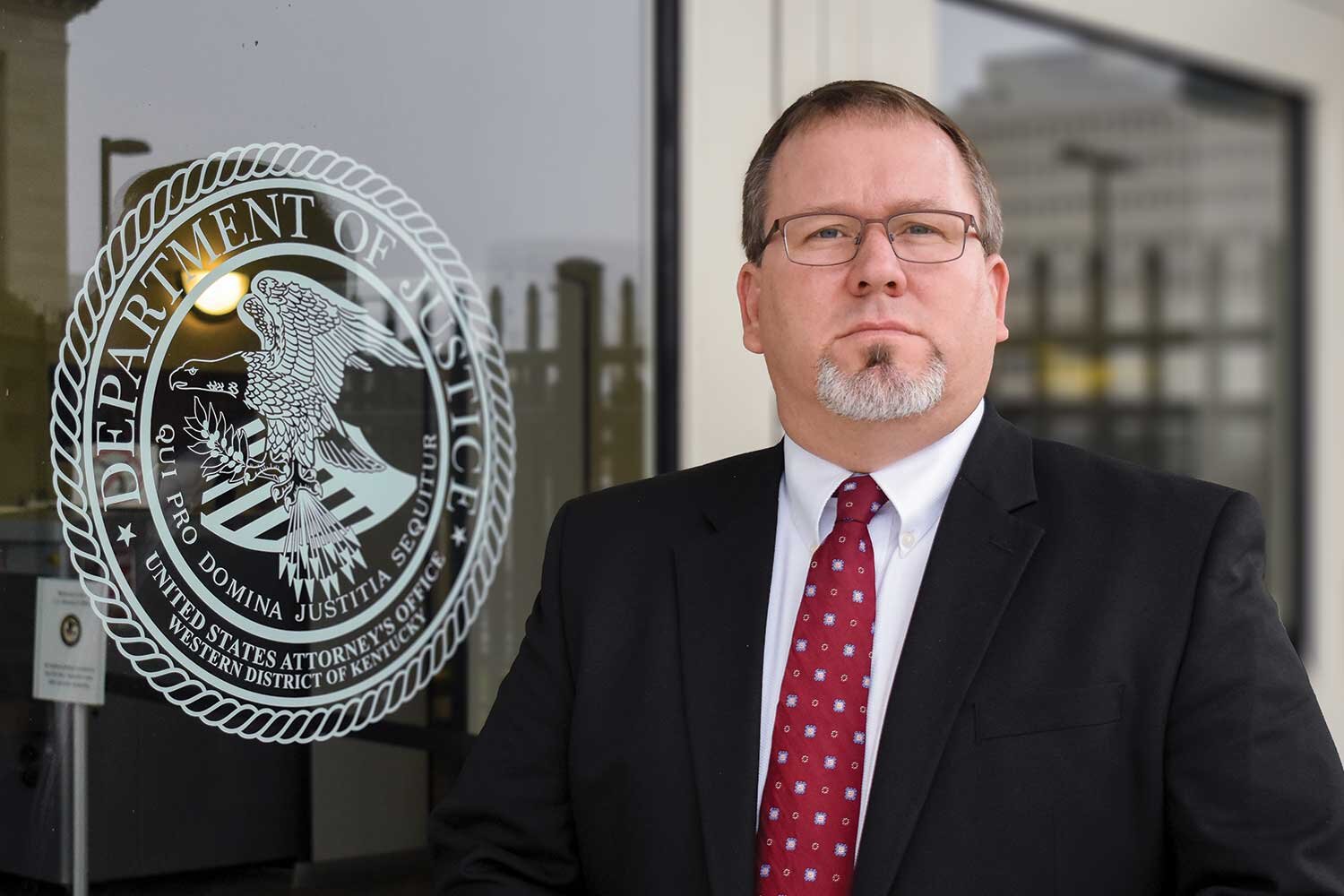In the Black
During his 24 years in law enforcement, Eric Black experienced just about everything – from patrolling the streets to running down drug traffickers. It’s safe to say, Black knows the ins and outs of policing.
United States Attorney of the Western District of Kentucky Russell Coleman was looking for that level of experience when he sought out a new law enforcement coordinator.
Black, who retired from the Louisville Metro Police Department in September 2019, became the law enforcement coordinator a month later.
“He’s the most important person in the room,” Coleman matter-of-factly stated.
As the law enforcement coordinator, Black will be responsible for advising Coleman on state and local law enforcement issues throughout the 53 counties making up the western district.
“I will primarily act as a liaison between local, state and federal law enforcement for the U.S. Attorney’s Office,” Black explained. “My job is to promote coordination and cooperation between those agencies.”
Black retired after a long career with the Jefferson County Police Department (before the government merger) and Louisville Metro Police Department, where he reached the rank of sergeant.
During his career, Black led a multi-agency High-Intensity Drug Trafficking Area (HIDTA) Drug Task Force, served as commander of LMPD’s robbery unit, commander of LMPD’s narcotics street platoon and was a detective with one of LMPD’s major case units.
Networking
Much of Black’s duties involve relationship building and making sure every agency is the district’s voice is heard.
“(Coleman) made that a priority,” Black said. “In the past, many counties may have been underserved, but ... he wants prosecutors in those communities to know that they have access to (the U.S. Attorney’s Office), and they have a partnership and working relationship with us to prosecute cases.”
Successful networking is one of Black’s goals.
“It’s making sure the U.S. Attorney’s Office keeps their finger on the pulse of local law enforcement,” he explained. “We manage those relationships so that we foster a positive environment, so when local or state police need assistance from this office, we’re ready and capitalize on that, and we can come in and help them.”
Upgrading Charges
The U.S. Attorney’s Office working alongside the Commonwealth Attorneys can help prosecute cases were the penalties in federal court carry more weight than a state court prosecution. Most federal statutes prosecuted require a defendant to serve 85% of their sentence, Black added.
“The sentencing guidelines for federal prosecutions are significant,” he explained. “So, as it relates to drug traffickers, violent gang members and trigger pullers, it enables us to come in and prosecute those cases and remove those people from the community.”
For example, in drug-related cases, the number of drugs involved can move a case from a local or state level to the federal arena.
“Many times, it’s more complex drug-trafficking cases, such as cartels,” he explained. “Cartels are supplying drugs to Kentucky. Much of it comes to Louisville, and it is distributed throughout western Kentucky. That is why it is so important for us to have relationships with drug task forces, Kentucky State Police, local law enforcement and local commonwealth attorneys. The drug cartel supplies the drugs for all the state and America.”
When law enforcement is dealing with drug cartels, they are dealing with a high volume of drugs such as heroin and cocaine.
“You’re dealing with kilos versus smaller amounts,” Black explained. “With that said, if there is a problematic person who is a menace to the area, and they’re drug trafficking, it may be a smaller amount of narcotics; there are federal sentencing guidelines that will enhance their penalty.
“For example, if they’re a convicted felon or if they have prior convictions that were violent in nature,” Black continued. “It’s not necessarily all the time for the large amounts (of drugs).”
Black said the role of the U.S. Attorney’s Office in Kentucky’s Western District is a fantastic tool law enforcement agencies can utilize, especially smaller agencies.
“I’ve seen it firsthand traveling around with Mr. Coleman,” Black said. “They have small budgets, and they’re doing the best they can with what they have. The biggest thing is they don’t know what we do and how we can help them.”






